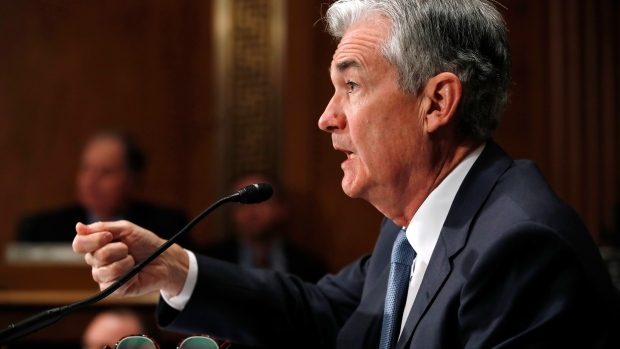Mar 1, 2018
Fed's Powell sees 'no evidence' of overheating in U.S. economy
, Bloomberg News

Federal Reserve Chairman Jerome Powell said he sees no signs the U.S. economy is overheating, and reiterated the central bank will continue to raise rates gradually to keep unemployment and inflation in balance.
“By continuing to gradually raise interest rates over time, we’re trying to balance those two things and achieve inflation moving up to target but also make sure the economy doesn’t overheat,” Powell told the Senate Banking Committee on Thursday in his second appearance before lawmakers this week. He added: “There’s no evidence the economy is currently overheating.”
Powell also said he doesn’t see a tightening labour market causing wages to hit “a point of acceleration.”
“I would expect that some continued strengthening in the labor market can take place without causing inflation,” he said. “We don’t see any strong evidence yet of a decisive move up in wages.”
Powell, 65, gave his first congressional testimony as chairman this week. On Tuesday he told members of the House Financial Services Committee his outlook for the economy had strengthened since December, causing investors to increase slightly the odds they see for a fourth interest-rate increase this year. In their most recent set of projections, Fed officials in December penciled in three hikes in 2018. They meet again later this month.
Stocks were little changed after falling for two days since his first day of testimony. The yield on the 10-year Treasury note was 2.85 per cent at 11:22 a.m. in New York, compared to Tuesday’s 2.92 per cent peak.
Investors are taking the measure of the Powell Fed as it debates how quickly to raise interest rates with an economy that is growing steadily and receiving new stimulus from tax cuts and spending increases signed by President Donald Trump in December. Inflation remains under the central bank’s 2 per cent target. A jobless rate of 4.1 per cent is its lowest since 2000 and below what Fed officials view as it’s long-term sustainable level.
Data released earlier Thursday showed real disposable income in the U.S. rose the most since 2015, indicating increased spending power may boost the economy this quarter. Filings for unemployment also dropped last week to the lowest level in almost five decades, providing more evidence of a tightening U.S. labour market.
Powell said the economy was “strong,” with the recent tax cuts adding “meaningfully to growth for at least the next couple of years.”
“The bigger question is how much it will add to longer-run growth,” Powell said. There, he added, the impact at this point was “highly uncertain.”
--With assistance from Shobhana Chandra Shelly Hagan and Jeanna Smialek